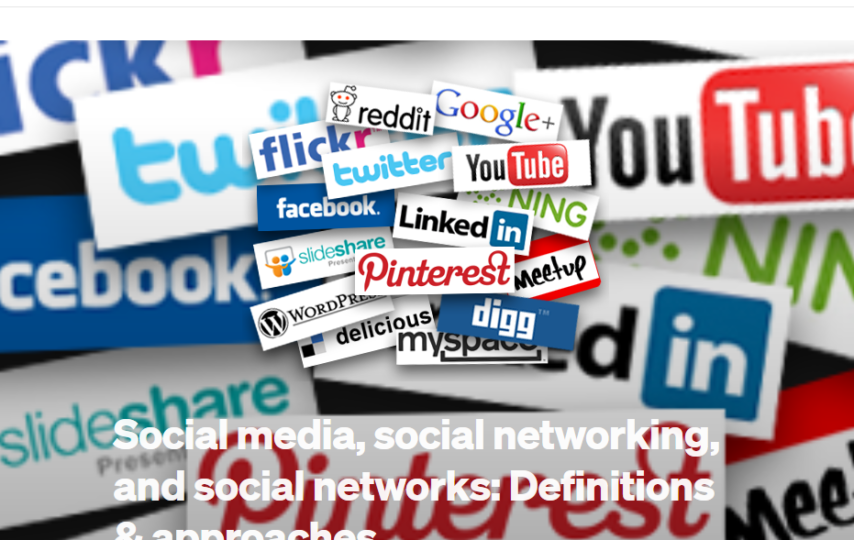For many young people today, social media has become an integral part of their lives. Most individuals use social media without Fastest Internet Generation Coming soon in India considering the impact it has on their life, whether positive or harmful. The internet and social media offer a variety of advantages and chances for young people to empower themselves in a variety of ways. To keep their online social lives safe from the long loading hours, internet providers like Hughesnet Gen 5 are highly recommended, so every comment and message can be sent in an instant, without worrying about any connection lags.
Young people can maintain social connections and support networks that they would not have been able to maintain otherwise, and they have access to more knowledge than ever before. Their self-confidence and social skills can be bolstered and developed through the communities and social connections they build online.
Social sites are now playing a key role in shaping the youth today. Without any further ado, let’s discuss how.
Becoming Independent
Online spaces, and social networking services provide similar opportunities to those found in offline social spaces: places for young people to hang out with friends or explore alone, developing independence and the skills they’ll need to recognize and manage risk, learn to judge and evaluate situations, and deal effectively with a world that can be dangerous or hostile at times. Such talents, on the other hand, cannot be developed in isolation and are more likely to grow if they are supported.
Content Creativity
Users actively participate in activities and debates on social networking sites, as well as upload, or create content. This encourages creativity and facilitates discussions regarding content ownership and data management. Young people who use social networking platforms to promote content such as film, photography, music, or writing should be aware of the permissions they are granting the host service so that they may make educated decisions about how and what they post.
Young Collaborators
Users can use social networking platforms to collaborate, think, and act together. They also necessitate the ability to listen and compromise. Young people may need to seek help and guidance from others when using services, or they may need to observe others to learn how platforms work, especially in complicated gaming or virtual settings. They will have obtained the experience to assist others once they have established confidence in a new situation.
Social Activists and Participants
Social networking platforms can provide a simple and effective toolkit for raising awareness of and taking action on topics and causes that impact and spark interest in youth’s minds. Social networking services can be used to organize activities, events, or groups to highlight issues and ideas and bring them to the attention of a larger audience. From fundraising, to organizing band events, and raising awareness for various organizations, for example.
Raising a Voice
Debating and discussion abilities can be honed via social networking platforms in a local, national, or international environment. This aids users in developing public-facing personas. Developing, and maintaining friendships, as well as being considered as a trusted connection within a network, are all key personal qualities in this setting. Young people can benefit from social networking services by learning how to function well in a community, navigating a public social environment, and establishing social norms and skills as members of peer groups.
Young Explorers
Social networks encourage people to explore new things. If someone is interested in certain books, bands, recipes, or ideas, a social networking service or group inside service is likely to cater to their needs. Users can construct their groups or social networking sites if they are seeking something more unique or uncommon. Social networking platforms can assist young people in pursuing their passions and connecting with others who share those passions. They can aid in the introduction of new items and ideas to young people, as well as the development of existing interests. They can also help users extend their perspectives by allowing them to learn about how people live and think in different regions of the world.
Staying Informed
It is important to emphasize the role that social networks play in the lives of young people because, in addition to allowing them to expand their social networks, they also serve as a medium through which young people can not only be informed about civic, political, and cultural events but also actively participate in them. Today the information travels faster online than almost any other source.
Developing Real-World Skills
Managing an online presence and being able to effectively communicate online is becoming a more significant skill in the workplace. Employers already perceive the ability to swiftly adapt to new technologies, services, and surroundings as a highly important skill, and it can help with both formal and informal learning. The majority of services are text-based, which promotes literacy skills such as interpretation, evaluation, and context.
Conclusion
Social networks should be viewed as current means of communication, engagement, and global participation, rather than only as technological instruments for transferring messages, as they were at one time.



